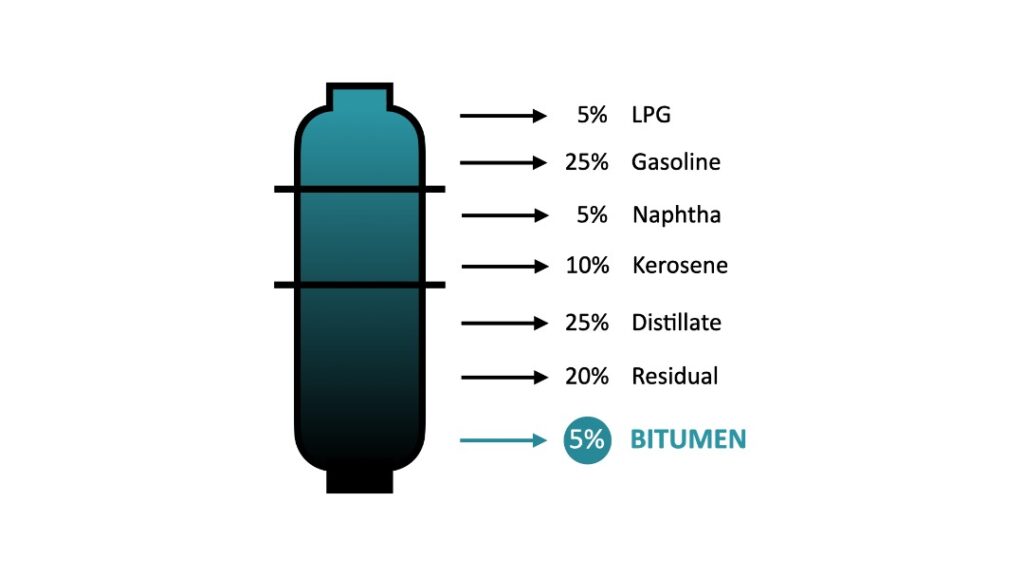WHAT IS BITUMEN ?

Bitumen (Also known as asphalt: Any of various mixtures of hydrocarbons (such as tar)) is a black or dark-colored material which can be found as either dense, highly viscous, petroleum-based hydrocarbon that is found in mineral deposits such as Gilsonite (Natural Bitumen) or can be obtained as a residue of distillation of crude oil (petroleum bitumen).
Petroleum Bitumen is a by-product of the fractional distillation of crude oil. Bitumen production through distillation removes lighter crude oil components, such as gasoline and diesel, leaving the “heavier” bitumen behind. Refined Bitumen is the residual (bottom) fraction obtained by fractional distillation of crude oil. It is the heaviest fraction and the one with the highest boiling point, boiling at 525 °C.
The Bitumen Refinery often refines the residue (also called VB or Slurry) several times to improve its characteristics. The most common specification of bitumen is penetration which is essential to identify the basic purpose while other aspects such as softening point. For this reason, the most common bitumen such as 60/70 and 80/100 are called Penetration Bitumen grades.
Commonly Bitumen refers to Penetration Bitumen otherwise specified as the penetration bitumen major application is road paving and waterproofing which is common all around the world. Other bitumen types and materials have same or other applications; therefore, they are more technical in the public eye.
The key matter to identify bitumen quality is to measure its Solvable Content in Oil matter, mostly TCE or CS2, commercially called bitumen content. If the Bitumen is Pure, it must have above 99% Bitumen content while superior qualities can have over 99.5% of Solvable content in Oil Matters.
Bitumen formulation at refineries can vary, still the only way to make a PURE Bitumen is to use 100% SLURRY as raw material and NOT to blend other materials. Time to time certain Slurry based additives could be used to increase characteristics such as ductility.

